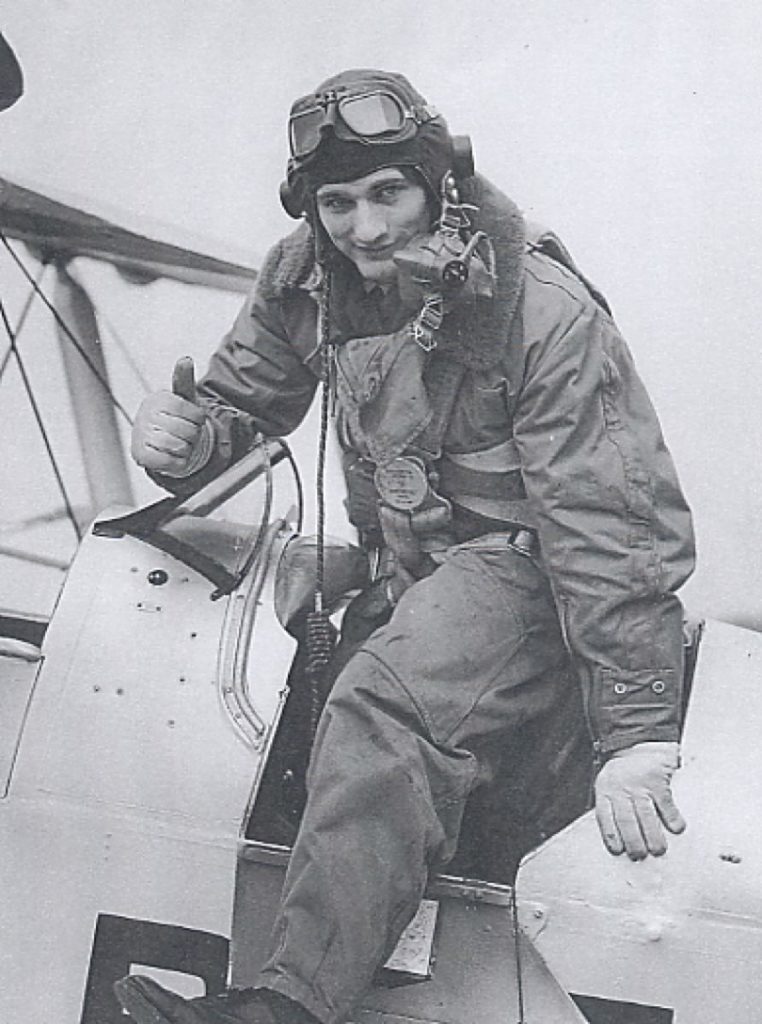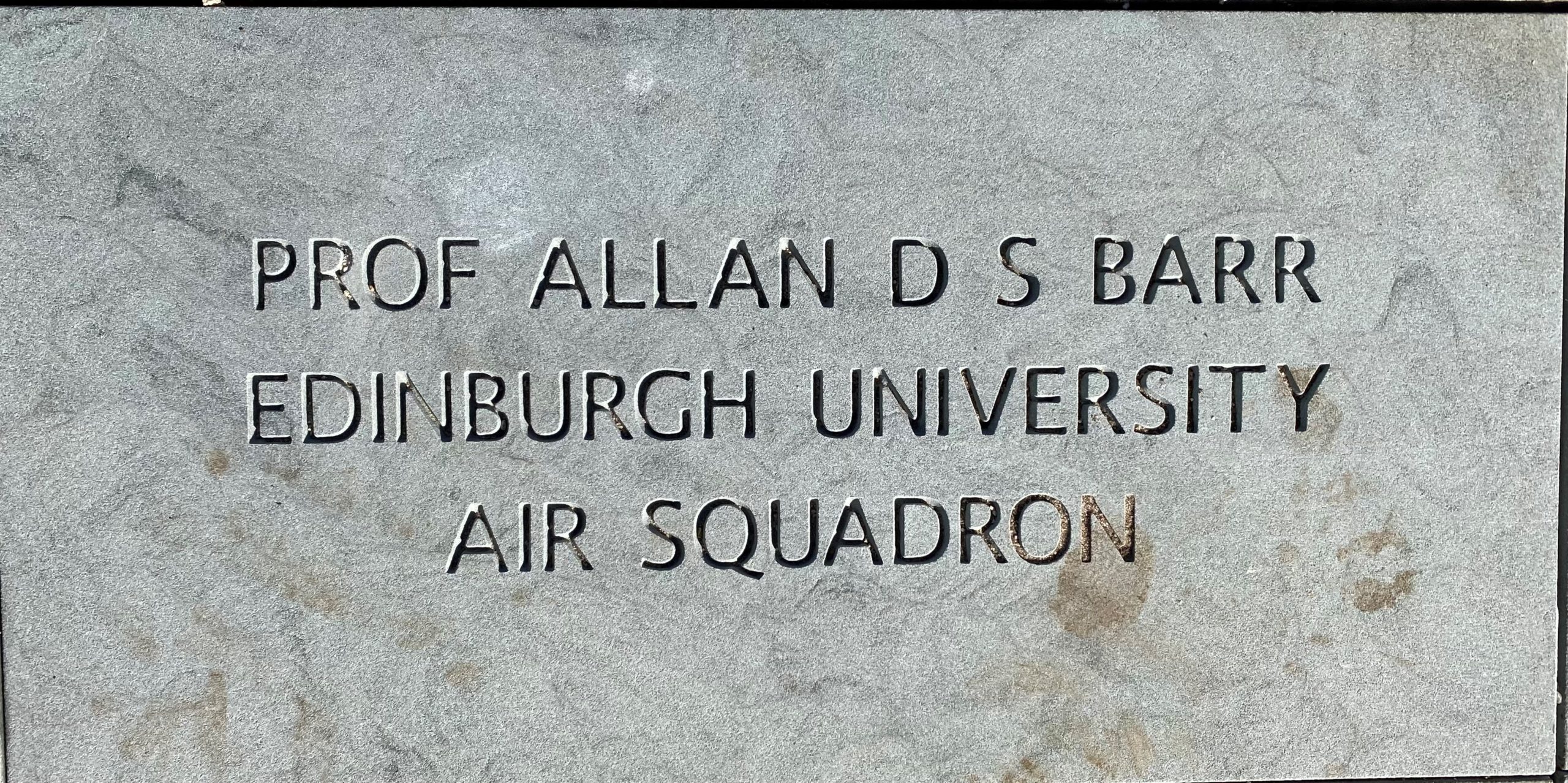Professor Allan D. S. Barr
11th September 1930 – 11th February 2018
Allan David Stephen Barr was born on the 11th September 1930 in Glasgow. His father, also Professor Allan Barr, was a highly respected theologian and a moderator of The United Free Church of Scotland. His grandfather was Rev James Barr MP, a pacifist, a great advocate of home rule for Scotland, the Chair of the Parliamentary Labour Party, and a moderator of the United Free Church of Scotland.
Allan was nearly 9 years old, and living with his family in Edinburgh, when World War 2 started. The first bombs of the war were in fact dropped on Edinburgh by the Luftwaffe as they tried to destroy the Forth Rail Bridge. Their bombs fell well wide of their target, hitting Edinburgh Zoo, which is on Corstorphine Hill, less than half a mile from the family home. The only casualties were a number of monkeys killed as their enclosure was hit. Allan was to comment years later that it was clearly a cynical attempt by Hitler to wipe out the Edinburgh intellectual elite. Shortly after this raid, children were evacuated from Edinburgh. Allan went to stay with friends of the family in their country house in Alloa, in central Scotland. He enjoyed it, living and playing in the countryside. A few months later however the evacuees returned to Edinburgh as it became clear the city was no longer being targeted.
Allan was always a bit concerned that he had stepped away from the then family line of professions which generally were those relating to the church, to medicine or to the arts. He went initially to Bristol and undertook a Student Apprenticeship at the Bristol Aeroplane Company, successfully completing this along with an ONC (Ordinary National Certificate) in Engineering. This gave him the practical foundation he desired and was a factor in him thriving in his engineering degree course at the University of Edinburgh, where he graduated in 1952 with 1st Class Honours. Allan’s excellence in academia and his thirst for understanding led him to becoming a Carnegie Research Scholar at the University of Edinburgh, completing his PhD in 1956, and subsequently lectured at the university.

Allan learned to fly as a member of the University Air Squadron at Edinburgh. He flew Chipmunks, Prentice and Tiger Moth aircraft. His passion for aircraft and flying came largely from the Second World War where his older brother, Jim, flew Swordfish aircraft. Allan did manage to “crash” a plane: the front wheels dug into soft grass so that when he applied power the tail lifted high into the air and the nose and propeller dug into the grass, largely destroying the aircraft, so much so that he had to write a letter of apology to the King. We are not sure if he got a reply, but he did continue to love aircraft and flying! For Allan’s eightieth birthday his family got him a flight in a Tiger Moth at RAF Duxford. He took the controls for a while, and he loved it.
In 1964, along with his family, Allan went on a sabbatical as a Fulbright Scholar and visiting professor to Cornell University, in New York state. On his return, he was appointed a Senior lecturer, then a Reader, and in the early 1970s acting Head of the Department of Mechanical Engineering at the University of Edinburgh. In 1972, Allan took up post as Professor and Head of the Department of Mechanical Engineering at the University of Dundee, a position he added to from 1983 to 85, becoming Dean of the Faculty of Engineering and Applied Science. In 1985, Allan and his wife Eileen moved to Aberdeen where he took up the Jackson Chair of Engineering, at the University of Aberdeen, becoming the Head of the Department of Engineering, and ultimately Dean of the Faculty of Engineering and Mathematical & Physical Sciences. He was made Emeritus Professor of Engineering in 1996.
Allan was bright, quick witted, intelligent, funny, and with such a broad range of interests that he pursued to a high level. He retained a desire to understand how things worked, particularly things mechanical. He had a real passion for motorcycles as well as cars, although at times he seemed to spend more time under them than in them. That practical side to his engineering knowledge and capability made him an even more complete professional engineer. Allan was a self-taught and accomplished pianist, able to read music. He enjoyed playing jazz the most.
Before Allan retired, he and his wife Eileen moved to their house at Auchattie, near Banchory, in Scotland. Their shared passion for gardening led them to develop a creative and beautiful garden. Allan’s interests and passions flowed naturally in his retirement; working lovingly on his old cars, from Land Rovers to Alfa Romeos; salmon fishing with friends on the River Dee; walking up Scolty Hill and in the stunningly beautiful Deeside; reading from his wide range and vast number of books; still doing academic work, with A3 sheets spread across his study desk covered in detailed calculations; feeding the birds and red squirrels by hand (although the grey ones got shot); more applications for his practical engineering skills too, with the sceptic tank being a big feature; he became a local church elder (as he had done wherever he lived); he enjoyed visits from family and friends, including in particular from his sister Margaret.
Allan was never one to boast or to blow his own trumpet about anything, not least his excellence in his profession as an engineer, an academic and a teacher: But let us do a bit here on his behalf:
Professor Allan D. S. Barr was a great Scottish academic, and leading researcher, with over 50 publications on his principal research area, that of dynamics and non-linear vibration. He also related his academic knowledge to practical applications. He secured numerous research grants and externally funded programmes (many of which are still classified) including work for the US Department of Defence (relating to military aircraft structures), and work for the UK Ministry of Defence (relating to submarine survivability to underwater shock), and work for Rolls Royce plc (relating to the optimisation of gas turbine blade design).
Allan was highly supportive of all of his students, including mentoring dozens of successful PhD students. He was a great, respected and dedicated lecturer and teacher, able to simplify challenging concepts, relate them to practical applications and experiences. He was an external examiner to a number of other UK Universities’ Engineering Departments, including the University of Newcastle, the University of Southampton and the University of Belfast.
Allan was a strong supporter of his profession and he did receive significant recognition from his peers. Over the years he has been:
- The Chairman of the Scottish Branch and a Member of the Council of The Institution of Mechanical Engineers.
- A Member of both the Technology and Scottish committees of the University Grants Committee.
- A Member of the Scottish Committee of the University Funding Council.
- A Member of the Council of the Royal Society of Edinburgh.
- A Member of the Executive Group Committee of the Engineering Council.
He was a Chartered Engineer, a Fellow of the Institution of Mechanical Engineers and a Fellow of the Royal Society of Edinburgh.
Allan David Stephen Barr; beloved husband to Eileen for over 63 years, father to David, Richard and to Christina. Grandfather (Grandpa) to Laura, Andrew, James, Tom, Emily, Lewis, Euan, Heather and Eilidh.
Allan is in many ways a very hard, nay impossible act to follow. A very complete life, a very complete man. Here there is no honorary degree, nothing we can physically award to Allan. Our tribute must lie in our hearts, in our memories and in our prayers of thanksgiving. It is left to sum up his life and his family’s love for him and his memory in the words applied to top graduates – summa cum laude – with first class honours.
David, Richard & Christina
October 2022
